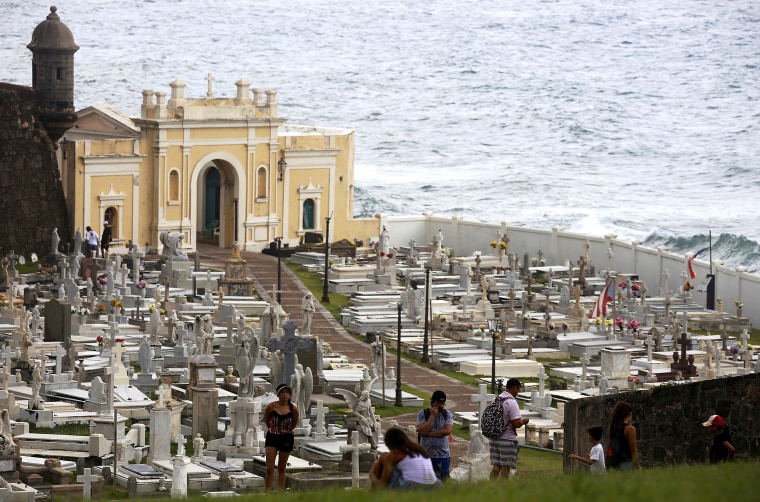Janet Collazo still remembers the day she got a call from a family in Moca, a small town near the western coast of Puerto Rico, weeks after Hurricane Maria pummeled the island.
“They would tell me, ‘he only has two hours of oxygen left. What can I do?’,” said Collazo, executive director of the Defensoría de las Personas con Impedimentos (DPI), a government agency in charge of protecting the rights of the island's disabled. “We were literally talking about life and death... People died because they had no respirators. That’s what hurts my soul the most.”
Collazo is among the many islanders who are not surprised by the new, official death toll 2,975, which the Puerto Rican government revised on Tuesday following the release of a new independent study from George Washington University's Milken Institute of Public Health. The numbers makes Hurricane Maria the deadliest natural disaster for the U.S. in 100 years.
But while most initial headlines focused on the study's number of deaths, the report outlined recommendations based on the flaws that the hurricane's aftermath exposed, such as a lack of preparation for a massive natural disaster and a series of missteps in keeping the public informed after the hurricane’s aftermath.
The GWU study found that doctors did not use existing Centers for Disease Control (CDC) guidelines to appropriately count the number of deaths that were related to the storm's aftermath. The doctors they interviewed said they were not aware of those guidelines. The study recommended that the Department of Public Health implement training for medical personnel ahead of the next natural disaster.
The report found that island officials had no "written, updated agency crisis and emergency risk communication plans in place" prior to the storm. In addition, the lack of clear, effective communications to the public “decreased the perceived transparency and credibility of the Government of Puerto Rico.”
Cecille Blondet, the director of Espacios Abiertos, a nonprofit that promotes government transparency and accountability, recalls the disconnect between the government's accounts and what Puerto Ricans like her saw on the ground.
“Especially between November and December, we were very concerned. The numbers from the government were not adding up with what we were all seeing in the streets or with what news outlets were reporting,” said Blondet.
Blondet remembers hearing government information on the radio, “for example, that this town has power now. And people would call the radio stations and say, ‘but I live here and I don’t have power’ or ‘there’s no power in one of the communities in that town’.”
The same thing happened with the death count and other relief efforts, said Blondet. This contributed to a slower, more effective response, since it was hard to know what the real needs were in towns and cities around the island.
Following the study's findings, Gov. Ricardo Rosselló said his government would create a commission to find ways to implement the recommendations.
For Blondet, the fact that her organization has had to sue the Puerto Rican government to get information including post-hurricane statistics and details on how the government is allocating federal recovery funds, confirms the need to implement the GWU recommendations.
Collazo, who has been working with local and federal agencies to coordinate better responses to aid the island's disabled communities, worries about the pace and urgency of any reforms. Still, they have no option, if they want to minimize the suffering and fatalities that followed Hurricane Maria.
“This catastrophe was unprecedented but that’s not an excuse for us to not be prepared,” Collazo said.

